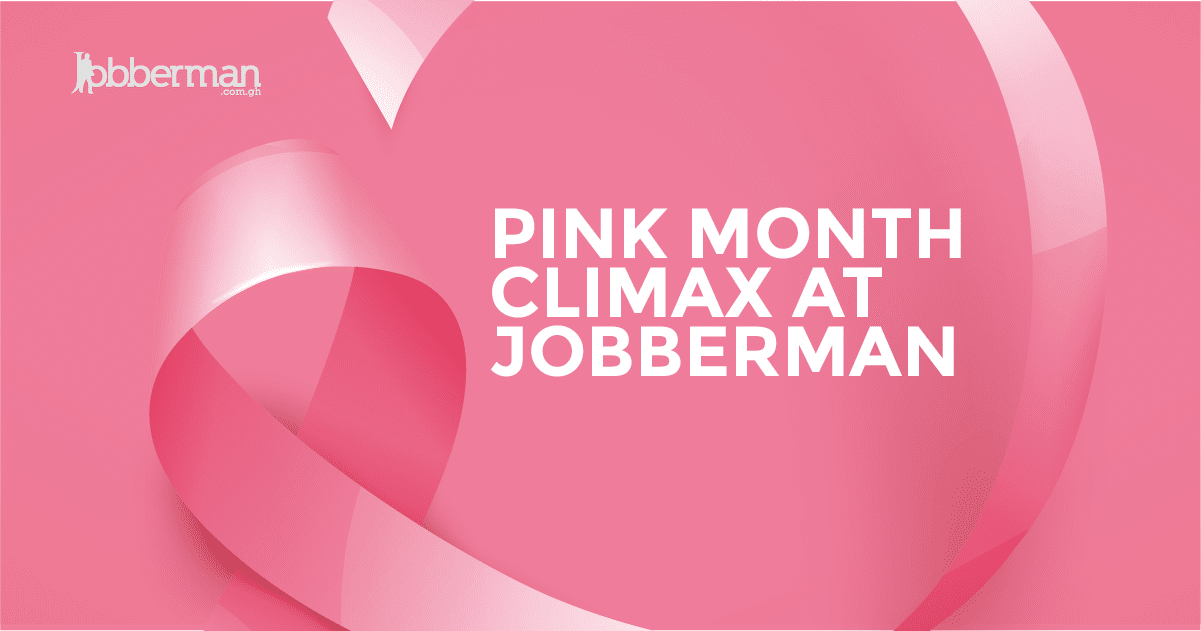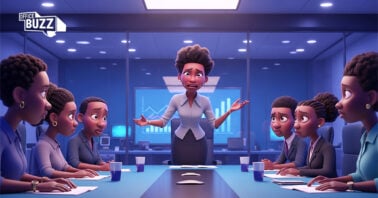Breast cancer is a disease in which cells in the breast grow out of control (Centers for Disease Control and Prevention). There are different kinds of breast cancer and the kind of breast cancer one has depends on which cells in the breast turn into cancer. It affects both females and males.
Breast cancer is one of the most silent but deadly diseases among women, especially adult women. But more importantly, cases of breast cancer are on the rise in Ghana, with older women being at more risk, (The prevalence and predictive factors of breast cancer screening among older Ghanaian women).
Let me quickly add that, it is factually accurate that in the past, breast cancer was only prevalent among older women, but the trend has changed. Many young people, particularly females, are now suffering from the disease.
On the 22nd of October 2021, employees of Jobberman climaxed pink month in grand styles. They were in pink clothing to show solidarity to all who have been affected by breast cancer. On that same day, a talk on breast cancer was organized for employees which were delivered by Dr Abigail Yeboah and her able team from Madina Polyclinic. The essence of the talk was to share insights on the causes of breast cancer, its effects, and treatments, after which free breast screening was done for all employees present.
Below are excerpts of the lessons from the talk.
Table of Contents
1. Every Female Is Prone To Breast Cancer
The first thing that came to light during the talk was the fact that every female is prone to breast cancer. It is therefore crucial for every woman of all ages to cultivate healthy eating and living habits in order to stay fit and strong to carry out their daily activities. As long as you are a woman, you could be the first person in your family to be affected by this disease. So, immediately you notice any strange change in your breast, don’t wait until it is too late because early detection is very important.
2. Breast Cancer Affects Both Male And Female
It is also worth noting that breast cancer can affect both males and females even though the rate of infection among women is much greater than that of men. Breast cancer has no respect for any person and it does not matter whether your family has a history of the disease or not. Anyone can get breast cancer and hence everyone should look out for strange changes in the breast all the time.
3. Breast Cancer Is Incurable But Can Be Treated
It sounds scary but the truth is breast cancer is incurable. However, it can be treated when detected earlier. Hence it is necessary for you to examine your breast often and also to go for a breast cancer check-up once in a while.
4. Mensuration Period Is Not The Best Time For Breast Examination.
While frequent breast examination is important, women must know that the period of menstruation is not always the best time for breast cancer examination. This is because, during that time, a lot of changes happen and hence the outcome of the examination may not be accurate.
5. Breast Cancer Is More Serious Than People Think
It should again be noted by everyone that breast cancer is more serious than we think due to the rate of increase in recent times. Therefore, everyone, especially women, must make it a point to examine their breasts regularly for strange changes to help in the early detection of cancer and possible treatment.
Symptoms Of Breast Cancer
These were the symptoms highlighted to help one to know whether or not they possibly have breast cancer; discharge from the nipple, lump in the breast or armpit, thickening or swelling of part of the breast, irritation or dimpling of breast skin, pulling in of the nipple or pain in the nipple area, and any change in the size or the shape of the breast. So, anytime you or a relative/friend experience one or more of the symptoms above, quickly see a doctor for a professional examination.
In conclusion, as we mark this pink October to create awareness, and to show solidarity to our fellow women and men who have been affected by the disease, get screened and spread the word to your friends and family to get screened.
Together we can, and we must!
We would like to appreciate Dr. Yeboah and her team who came around and educated us.





